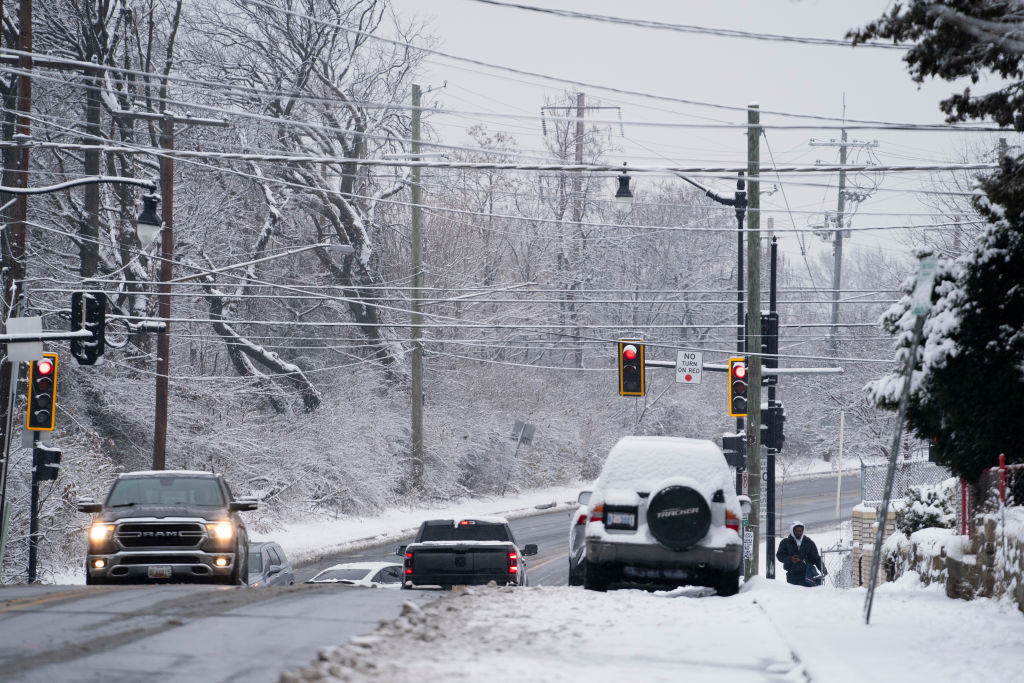Winter snow storms have continued to bring dangerous conditions to swaths of the U.S. over the weekend, after a barrage of extreme weather already left some Americans with no water or power.
Storms and icy conditions over the past few weeks have proved fatal, with at least 60 weather-related deaths reported across the U.S., per NBC News.
[time-brightcove not-tgx=”true”]
In Oregon, where the governor declared an emergency on Thursday, the treacherous wintry conditions killed at least 10 people. The victims include a pregnant woman, her boyfriend, and her brother, who were electrocuted while trying to get away on slick concrete from a power line that fell on their car. A neighbor saved the couple’s nine-month-old baby, with both miraculously escaping unscathed, the AP reported.
The National Weather Service issued a new ice storm warning in Oregon from 1 p.m. local time Saturday to 4 p.m. Sunday. More than 31,000 customers in the state were already without power midday Saturday, according to PowerOutage.us.
The agency issued other extreme winter weather warnings across the country. While this weekend’s arctic outbreak was not expected to be as cold as the previous one, forecasters on Saturday predicted wind chill temperatures as low as -20 to -30 in the northern Plains, sub-zero temperatures as far south as Missouri and Kansas, and below freezing temperatures across the Gulf Coast.
The agency issued a new freeze alert over Saturday night for most of the South, which is normally used to mild winters.
In Tennessee, at least 14 people died because of the weather as of Friday, authorities told the AP. Frozen pipes burst and significantly dropped water pressure in Memphis, leading to Memphis Light, Gas and Water issuing a boil notice to customers as a precaution. In Alabama, some residents were marooned at home all week as ice coated roadways, making them impassable.
Temperatures are expected to warm up in the middle of the country on Sunday, with the arctic blast shifting eastward and to the mid-Atlantic region by Monday, the National Weather Service said.

